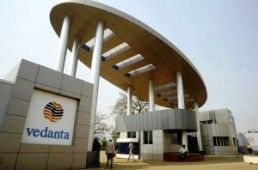 In what could be a jolt for Vedanta Aluminium Ltd, the fate of the beleaguered proposal to mine bauxite in Odisha’s Niyamgiri Hills was sealed on Monday, with the seventh of the 12 gram sabhas -- at Phuldumer in Kalahandi district -- rejecting the plan.
In what could be a jolt for Vedanta Aluminium Ltd, the fate of the beleaguered proposal to mine bauxite in Odisha’s Niyamgiri Hills was sealed on Monday, with the seventh of the 12 gram sabhas -- at Phuldumer in Kalahandi district -- rejecting the plan.
Earlier, the first six of the 12 villages in the Rayagada and Kalahandi districts chosen by the state for a referendum on Niyamgiri mining, too, had turned down the proposal.
The remaining five gram sabhas, scheduled for August 19, are also expected to go with the trend so far.
Though the Supreme Court had asked for the gram sabhas’ mandate on the protection of tribals’ religious rights over their presiding deity, Niyam Raja, located at Hundaljali, about 10 km from the proposed mining site, the villagers in all gram sabhas have claimed religious rights over the entire hill range -- not just Hundaljali.
“The entire Niyamgiri hill range is sacred for us and is the source of our livelihood,” was the common message.
“It is immaterial whether seven or twelve gram sabhas reject the proposal.
"The negative outcome of a single gram sabha would have the same impact on the project as those of 12 gram sabhas,” says Odisha Tribals Welfare Secretary Santosh Sarangi.
The apex court direction was to preserve the religious and cultural rights of the Dongaria Kondhs at Niyamgiri.
If the project, according to the opinion of the tribals in a single village, affected their religious rights, how could that be ignored, he pointed out.
He added, after all the gram sabhas were held, the proceedings and resolutions would be sent to the Union Ministry of Environment and Forest, which would take a final view on the forest clearance of the mining project, withdrawn in August 2010 by the then Union Minister Jairam Ramesh.
Bauxite mining in Niyamgiri is crucial for raw material security of Vedanta Aluminium Ltd, which had set up its one-million-tonne-per-annum Lanjigarh alumina refinery at the cost of Rs 5,000 crore (Rs 50 billion) --
A top VAL official, however, said the outcome of the gram sabhas would not have any impact on the mining project.
“The apex court had pointed out in its order over forest clearance for the mining project in 2008 that opinion of gram sabhas is required for minor minerals and not for major ones like bauxite, iron ore, etc.
The Supreme Court had only asked for settlement of individual, community and religious rights of tribals through gram sabhas.
As far as religious rights are concerned, it should pertain to particular places of worship -- not the entire hill range,” he said.
He added: “The Lanjigarh refinery is currently running at 60 per cent capacity by sourcing bauxite from outside the state. "We also hope to get supplies from Balco’s Kawardah mines in Chhatishgarh soon."
While the raising cost of bauxite at Niyamgiri or mines outside the state works out to the same -- Rs 700-750 per tonne -- it is the extra Rs 1,600-2,000-per-tonne logistics cost for bauxite secured from Jharkhand, Maharashtra and Chhatishgarh that is bleeding the company now.
For its refinery, VAL needs about three million tonnes of bauxite annually.
This puts an extra Rs 600-crore (Rs 6-billion) burden under the raw material head, affecting the viability of the plant.
The company has applied for 26 alternative mines in the radius of 150 km of Niyamgiri and also urged the state government to expedite processing of OMC’s pending applications, especially those bauxite leases that fall under non-forest areas.
These applications are either at the PL (prospecting licence) or ML (mining lease) stage.






